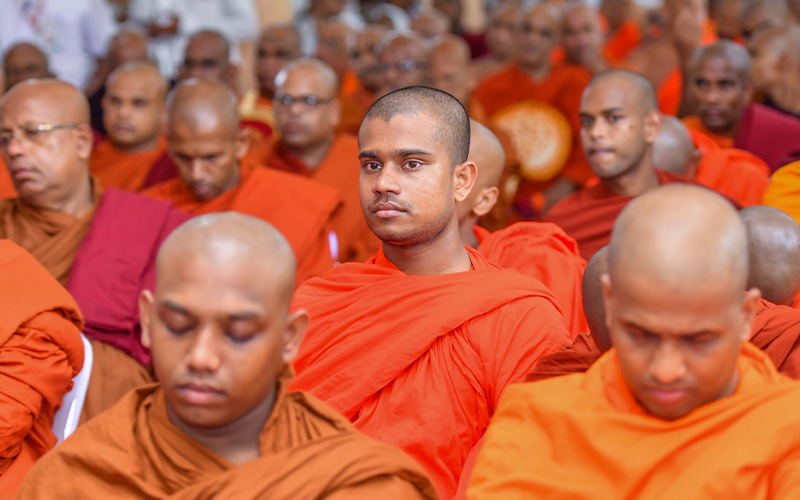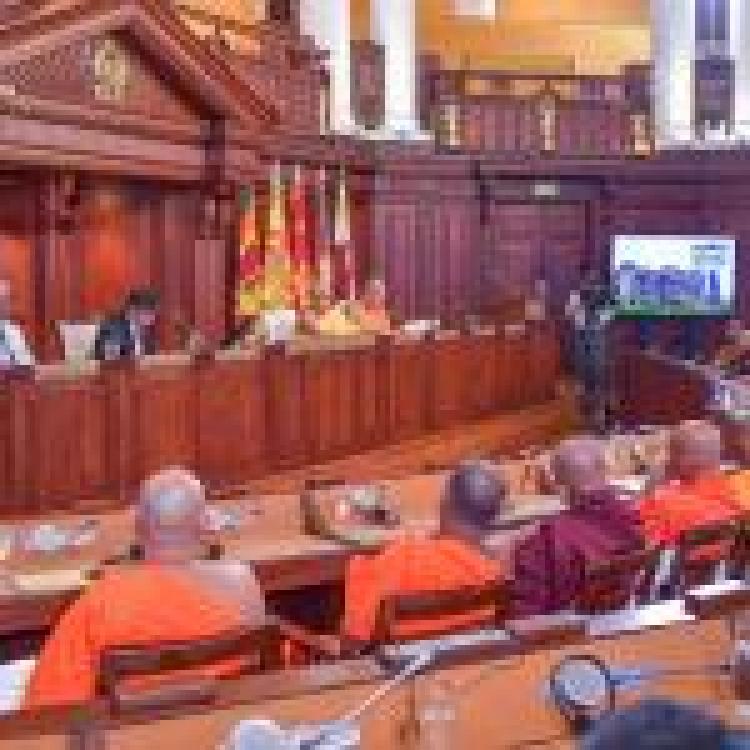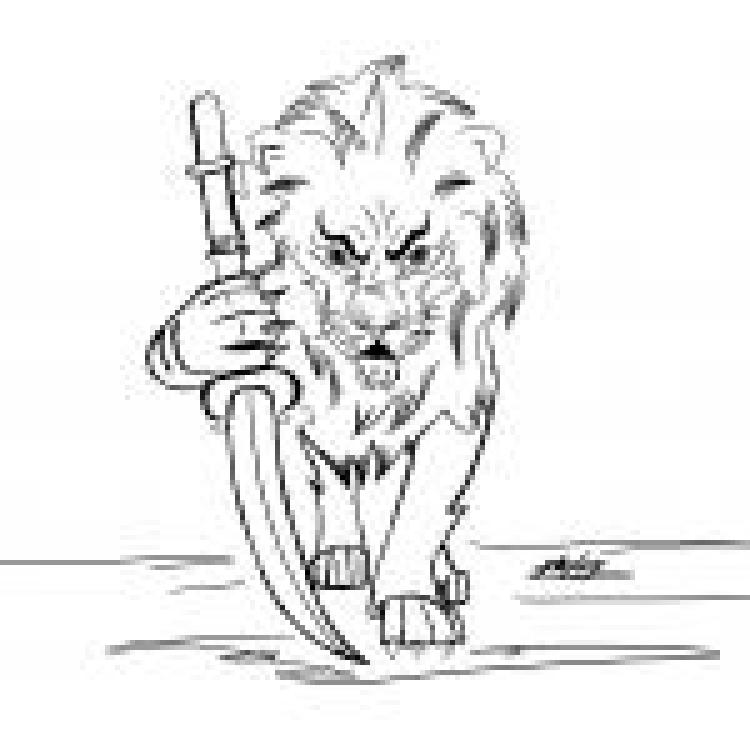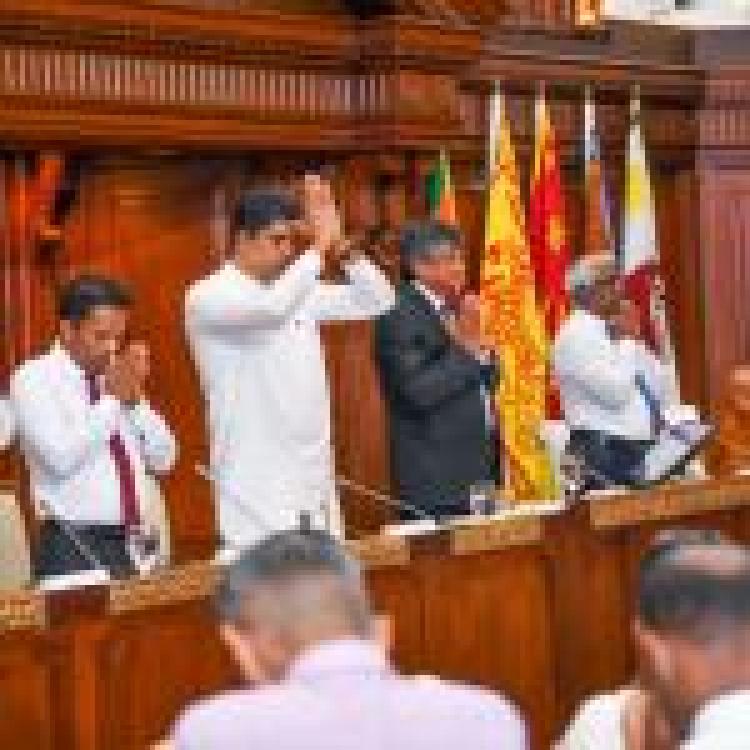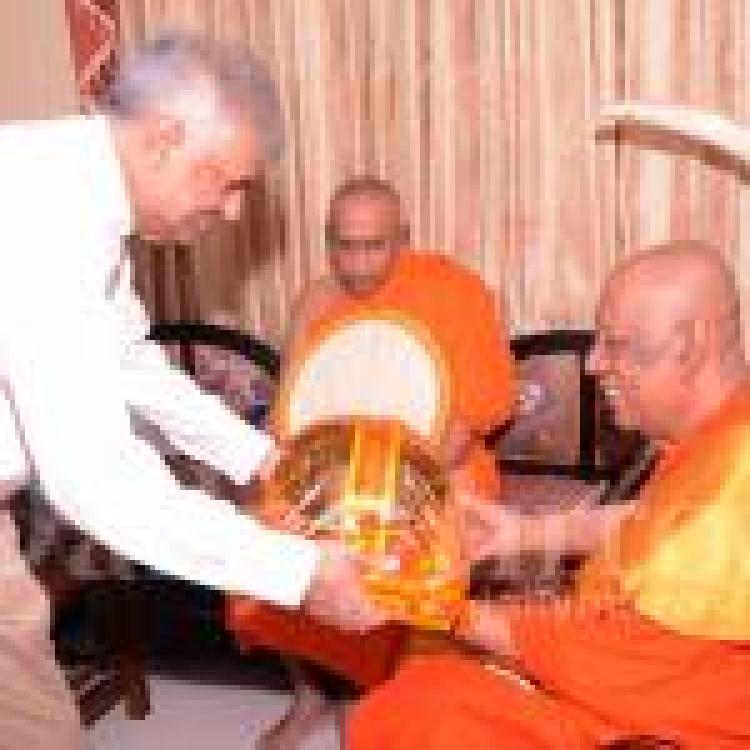
Sri Lanka’s president Ranil Wickremesinghe claimed the “guidance and advice of the Maha Sangha are crucial in leading the country,” as he addressed the Sinhala Buddhist clergy on the topic of “establishing a new economic and political system” on the island.
Wickremesinghe compared Sri Lanka to “other Theravada Buddhist countries,” stating that Sri Lanka’s reliance on imports “has led to financial instability”.
He emphasized that the “guidance and advice” of the Maha Sangha—the senior Buddhist clergy—was needed “to establish both a new economic system and a new political system in the country as soon as possible”.
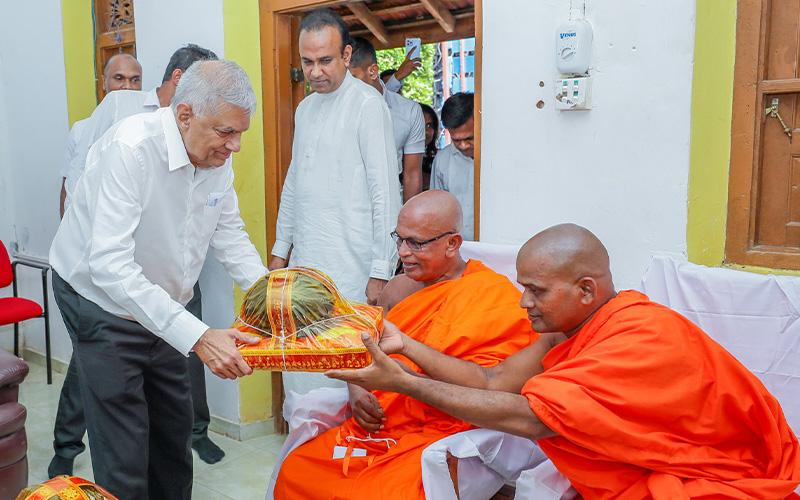
The Sri Lankan president made the remarks during the 44th Higher Ordination ceremony (or Upasampada) of the Ariyawansa Saddhamma Yuktika sect of the Maha Vihara Vamsika Amarapura Maha Nikaya.
“It is important to note that today’s Upasampada is also state-sponsored,” added Wickremesinghe.
“It is also important to acknowledge the significant efforts of the monks in preserving monkhood and order during British rule in Southern Sri Lanka.”
Wickremesinghe is a staunch Sinhala Buddhist nationalist, repeatedly vowing to ensure Buddhism has primacy in Sri Lanka and pledging to further Sinhala Buddhism on the island.
